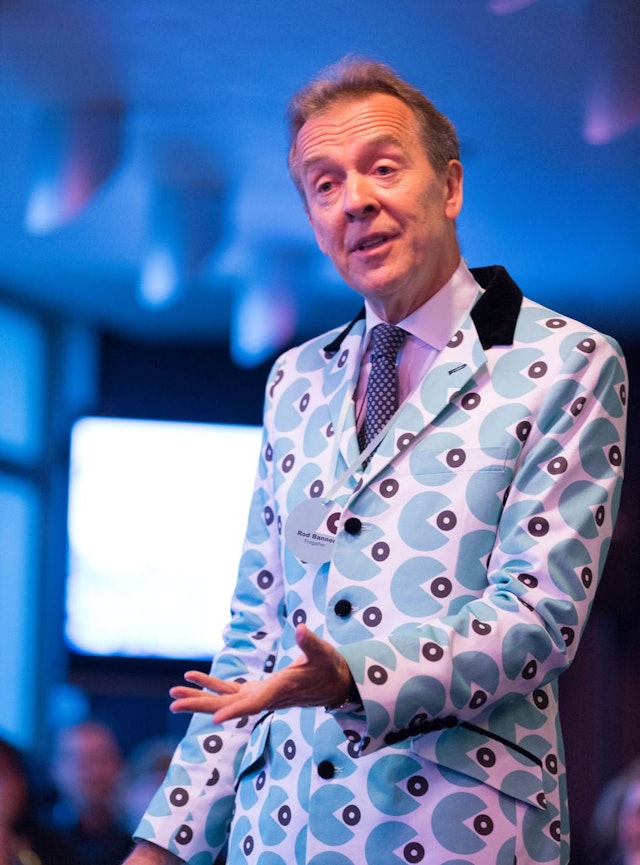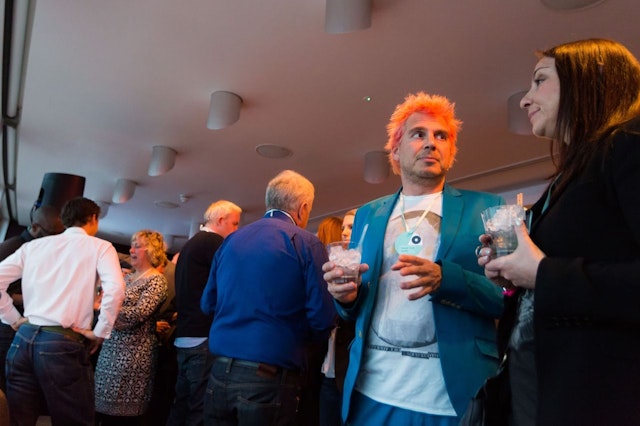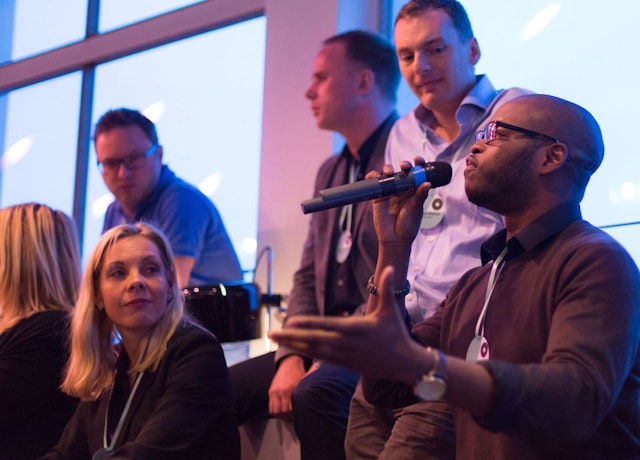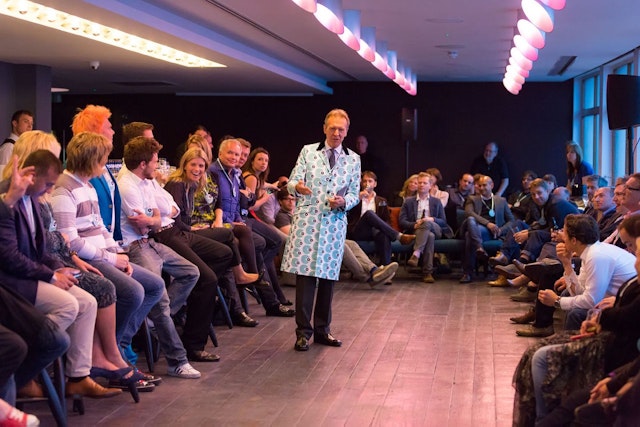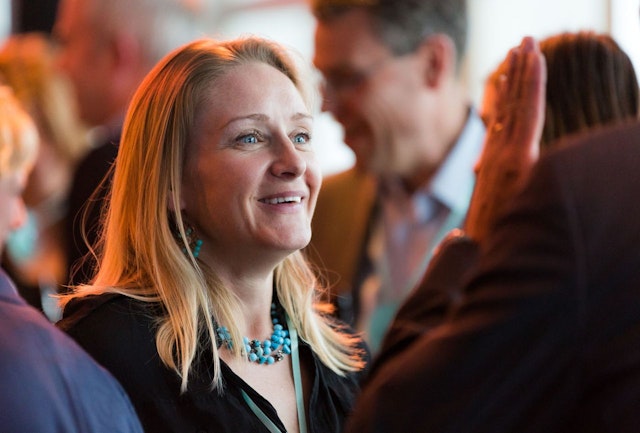The third Collision debate saw creatives and marketers come together to discuss whether the evolution of technology would one day overtake the advertising sector entirely – a long time argued topic of conversation within the tech and advertising sectors with the dawn of digital.
Rod Banner, founder of Banner Corporation who has long following the ‘technification’ of marketing, hosted in a highly fashionable knee length coat that confused and delighted the room in equal measure, and admitted that having studied the topic in great details over previous days, his brain was “completely fried” as there was “so much going on here and nobody seems to know where it’s going to end up.”He said that the notion that advertising was dead was incorrect, that it was in fact “still growing” but that the tech industry was “much more exciting” citing Google’s attempt lobby the Government with its driverless cars as an example. Asking how the automation of Adland was developing, including the optimisation of media buying and mobile where Banner said that 61 per cent of the UK population had a smartphone, and the revelation that NFC beermats were now available for around 30p.
Never shy of the spotlight, Alistair Scott, former creative director of The Bright Place was first to speak said that “unfortunately the automation of Adland right now seems to be the zenith of the modification of creative where the ability to automate systems to post ads relevantly on my phone while I’m standing outside that store or to look at the last 38 things I searched on Google and then drove me to the 39th. We’re moving away from great creative images and the balance is out of kilter and I predict that in a while, although these things are hyper targeted, there is no interest level there.” He added that while media planning and buying was becoming automated – he felt great idea-led campaigns were currently being overlooked.
Realtime Bidding (RTB), it was later claimed elsewhere, meant that advertising creative could be morphed and changed on the second depending on the time of day and location, while the discussion of ‘touch points’ by those in adland, it was stated had grown in number rather than changing unrecognisably. Another esteemed professional argued that RTB was not marketing but came out of the e-commerce budget of brands and was not about engagement whatsoever. “RTB is about placing targeted ads to convert to the shopping cart, they are not about brand engagement at all,” was the controversial statement that led to an argument over the neccessary content. It was also argued that we were entering the ‘golden age of the brand strategist’ where it was not about the use of one idea, but the ability for brands to become part of someone’s life through technology. “The companies who are struggling right now are the ones who have a product philosophy who are trying to crunch that into some sort of meaningful consumer engagement using fairly naff creative ideas,” it was stated. “The brand who have a real sense of how they are going to work in the new world and adapt to new tech are the people who have a clear vision of what their purpose in within a consumer’s world…those guys can morph fast as given the opportunity they know what the answer is.”
Marc Warren from Periscopix added to that technology was providing an ever increasing opportunity to engage. “There’s two dimensions to that, with smartphones and tablets there are more places where we can engage, while the ad targeting is providing more opportunities is impacting ROI. It’s providing, new and affordable occasions to engage the consumer. But let’s not lose sight of the fact that you have to have something to engage with that is engaging.” He added that technology may offer more opportunities to create content that is more targeted and engaging. The point was made that technology would mean the death of press advertising creative as the next generation of creative comes through without much interaction or interest in newspapers, which led to Catherine Gull, head of sales – retail, for Vodafone claiming that smartphones were “the new newspapers” but that they would only be interacted with by people who wanted to interact with them – just like the newspaper.
Heinz UK’s Alison Wilkes offered her view as a budget holder on the current senior marketers who are still trying to understand technology and how marketing has moved on. “You’ve got to bring us with you in how you reach our consumers better and how we measure that better – educate us on this journey.”This was a message that resonated with other marketers in the room, including Amanda Jobbins, CMO of Sage who was one of the sponsors of the night, and something she would later discuss with The Drum, highlighting the need for agencies to be more active in keeping their marketers informed of technological developments. Banner also queried why utility brands had become less forthcoming in responding through social media than they had previously been – meaning that potentially the technology had become less powerful in recent times as usage has grown. Of course data use would be another factor of the conversation, where some believed that ‘the more information that is available about your consumers, the better’ however others felt that too much information confused the insight when it came to conversion. As to who holds the responsibility for that data as agencies that collect it are hired and fired as the client pleases.If there was much of a consensus from the debate, and there wasn’t much, then it was that the technology sector can help empower creative advertising and offer new routes to consumers – however it also seems that tech and ad guys will never truly see eye to eye – unless Techville really does eat up Adland entirely.
